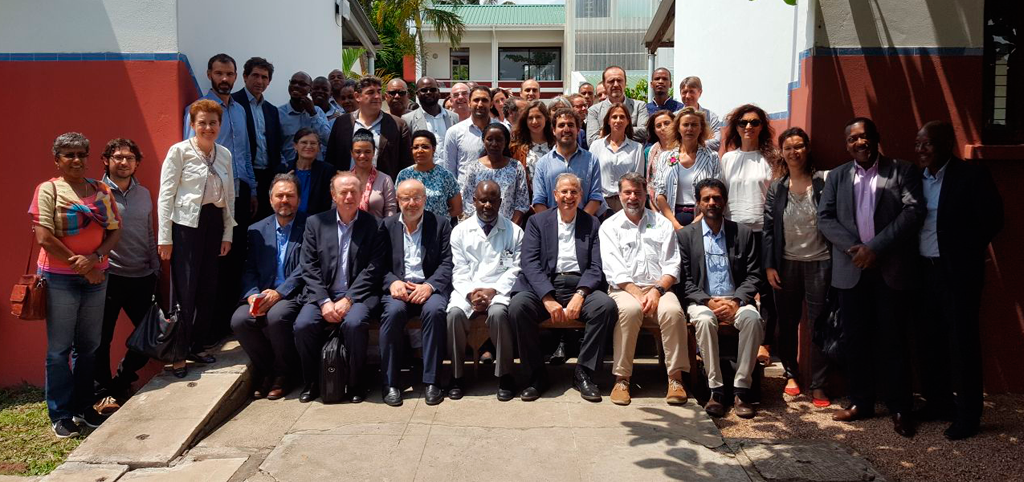Innovation as the Driver of the “New Development Aid"
The role of innovation in development aid is analysed at a seminar organised by ISGlobal, CISM and Spanish Cooperation (AECID)
09.11.2017
Scientific and technological knowledge has been the driver of the extraordinary advances made by humanity over the last two decades. It is not surprising, therefore, that the 2030 Agenda, the action plan that defines the Sustainable Development Goals, underscores the fundamental role of innovation and knowledge exchange must play in our response to the challenges posed by inequity and poverty. In this way, the Agenda is shaping a new kind of development aid that will complement the more traditional assistance model.
On 7 November last, the Barcelona Institute for Global Health (ISGlobal), the Spanish Agency for International Development Cooperation (AECID) and the Manhiça Health Research Centre (CISM) organised a seminar in Manhiça, Mozambique, on the role played by innovation in the promotion of development. The event was inaugurated by Eusebio Macete (Director of CISM), Pedro Alonso (Director of the WHO Global Malaria Programme), Fernando García Casas, the Spanish Secretary of State for International Cooperation and for Ibero-America and the Caribbean, and Ilesh Jani, Director of the National Health Institute of Mozambique.
The aim of this symposium was to explore the relationship between the generation of knowledge and progress and to gain a better understanding of how these two dimensions are linked by the concept of innovation, that is, the transfer of knowledge to public policies that have a real impact on society. In the course of the day, Spain’s international cooperation strategies were analysed to identify the most appropriate tools for fostering innovation and to develop the fundamentals of an innovative policy that will bring us closer to meeting the targets set by the 2030 Agenda.
Representatives from research centres and development cooperation institutions evaluated several international development cooperation programmes, in particular that of Spain. Their analysis revealed that interventions based on innovation can have a very positive impact on the living conditions of impoverished populations. (Initiatives based on innovation have been shown have greater impact than other types of interventions). Their findings also highlighted the need for specific instruments to bring innovation and international cooperation together, creating more opportunities for researchers to contribute to global development goals.
They also reviewed practical examples of innovation in development and the institutional dimension of such initiatives. The focus, in this discussion, was on civil society organisations, and the participants explored the impact of public-private partnerships and other innovative alliances as well as cooperation projects aimed at fostering scientific interventions in developing countries.
In short, the results of the analysis called attention to the need for cooperation agencies and other development actors to prioritise innovation. “An effective approach based on knowledge generation and knowledge transfer through cooperation activities is a necessary prerequisite for the achievement of the development goals we need to meet in the coming years if we are to contribute effectively to the achievement of the targets defined by the 2030 Agenda” concluded Toni Plasència, Director of ISGlobal, who also took part in the seminar.



